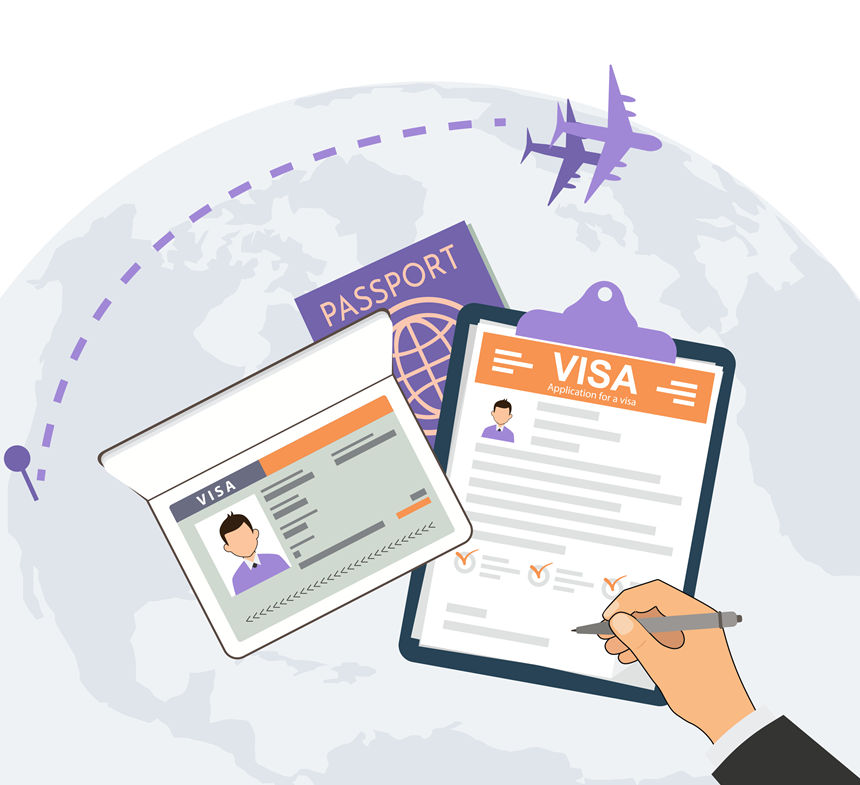You’re lounging in a Pattaya coworking space, sipping on an iced Thai tea, laptop open, with the Andaman Sea calling your name. Life is good. But then it hits you—what visa do you actually need to keep working remotely in Thailand without any headaches?
While Thailand is a digital nomad hotspot, the visa situation can be a bit… let’s just say, “adventurous.” Unlike some countries that roll out the red carpet with official digital nomad visas, Thailand has a mix of options, and the best one depends on whether you’re working for foreign clients or want to set up shop in Thailand.
Let’s break it down.
Not exactly. Thailand doesn’t have an official digital nomad visa, but there are a few visa types that remote workers commonly use, such as:
Tourist Visa (TR): A quick fix for short stays, typically 60 days with an extension option. But working on this visa? Not technically legal.
Education Visa: Enroll in a Thai language course or Muay Thai program and stay for a year. But if your "studying" mostly involves working online from a beach, you could run into issues.
Elite Visa: Got extra cash? Thailand’s Elite Visa gives you 5-20 years of residency, but it doesn’t technically allow you to work.
LTR (Long-Term Resident) Visa: This sounds like a digital nomad visa, but it’s mostly for high-earners, investors, and highly skilled professionals. If you make over $80,000 a year, you might qualify.
Smart Visa: Designed for startup founders, tech experts, and skilled professionals. If you’re working in a government-supported industry (like tech, health, or automation), this might be your golden ticket.
So while there’s no official digital nomad visa, plenty of nomads use creative solutions to stay in Thailand long-term. But what if you want to freelance for Thai clients or start a business? That’s where the self-employment visa options come in.
If you want to freelance, consult, or run a business in Thailand, you’ll need a visa that actually allows you to work inside the country. Here are your options:
This is the most legitimate way to work in Thailand if you’re planning to offer services or start a business. You’ll need:
✔️ A Non-Immigrant B Visa (Business Visa)
✔️ A Work Permit (this is key—without it, working is illegal)
✔️ To register a Thai company or have a Thai business sponsor you
This setup is ideal if you’re launching a startup, freelancing with Thai clients, or hiring employees in Thailand. But be ready for paperwork and business registration requirements.
If you’re in tech, innovation, or a government-supported industry, you could apply for a BOI-supported visa, which makes getting a work permit easier. But unless you’re a startup founder or investor, this won’t apply to most digital nomads.
Many freelancers work remotely for foreign clients while living in Thailand, often on tourist or education visas. While this is common, it’s technically not legal. If you want to do it right, you’d need to:
✔️ Set up a Thai company and get a business visa + work permit
✔️ Work for a registered Thai company that sponsors your visa
✔️ Look into long-term stay visas like the LTR Visa if you meet the income requirements
| If You Want To… | Best Visa Option |
| Work remotely for a foreign company | Tourist Visa (short-term), LTR Visa (if you qualify) |
| Freelance for Thai clients | Business Visa + Work Permit |
| Start a business in Thailand | Business Visa + Thai Company Registration |
| Stay long-term without working | Elite Visa (if you can afford it) |
Thailand is a dream destination for digital nomads, but navigating the visa situation requires planning. If you’re just working remotely for a company abroad, the LTR Visa (if you qualify) or a tourist visa (short-term) could work. But if you want to offer services to Thai clients or start a business, you’ll need a proper work permit and business visa.
No matter which path you take, one thing’s for sure—Thailand’s coworking spaces, beaches, and amazing food make it worth figuring out the logistics. 🌴💻
